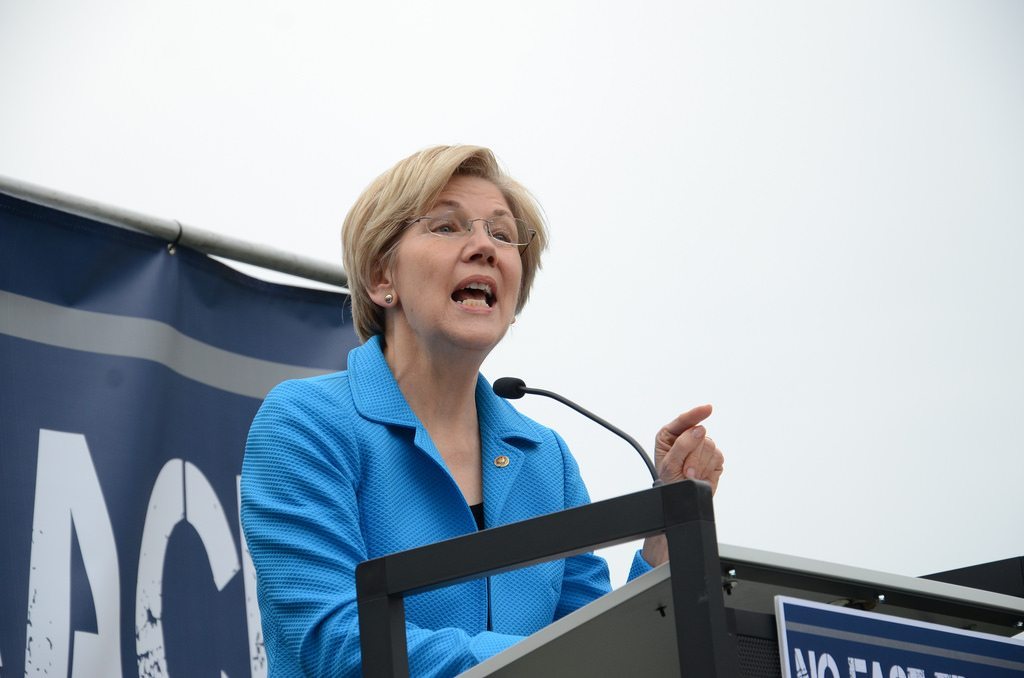The Democratic Party is in dire straits. It’s not just that Donald Trump and his Republican friends control the White House and both houses of Congress, or that Democrats have been decimated in governor’s mansions and statehouses across the country. As Martin Longman notes, 2018 doesn’t look promising for Democrats in Congress, and 2020 doesn’t look much better in the Senate. The House probably won’t be winnable until after the next census. That’s not because Democrats are weak in terms of raw numbers; the left actually has a numerical majority in the country. But America’s political system is so disproportionately weighted toward rural power that the more liberal majority of the country is effectively disenfranchised. Over the next six to ten years Democrats will likely do well, but the party’s prospects are grim until then–nor is it clear that the country will survive aggressively radical minority rule that long without massive social upheaval.
Democrats must absolutely win over some of the exurban and rural, mostly white, mostly working class voters that has slowly ceded to Republicans in the past decade. The question is how to do it and at what cost. Arguments that greater liberal turnout or pushbacks against voter suppression will solve the problem are unpersuasive: most of the states and districts in play don’t show dramatic Democratic underperformance, and it’s hard to know how much depressed Democratic turnout was due to disenfranchisement versus lack of interest–and in any case, most of those voter suppression laws are very unlikely to be overturned.
That is why the argument over economic populism in the Democratic Party looms so large. If the moderate liberal consensus view is correct that Trump voters were entirely driven by racial prejudice, then there is nothing the Democratic Party can do to fix its problems without reversing its progressive stances on racial and gender equality. When Longman says that the Democratic Party needs to make changes that not even he wants, this is presumably what he means. Most Democrats, to their credit, are unwilling to make concessions on social equality in order to appeal to Trump’s rural white voters.
But that’s why it’s so crucial to point out that many of Trump’s voters were not, in fact, driven entirely by prejudice. The Party does not, in fact, need to throw women and minorities under the bus to win back the voters who defected from Obama to Trump. It simply needs to drive a much clearer progressive narrative, admit that the nation’s economy as it has been run for the last 30 years has serious problems that need fixing, and paint corporate and Wall Street elites as the real villains in the story of the white working class’ downward mobility.
That won’t, of course, win over all of Trump’s voters or even a significant minority of them. It’s not that Matt Yglesias and his like-minded friends are wrong about the prejudiced motivations of most of Trump’s electorate. They’re right.
But it’s important to distinguish between the core Trump voters and the marginal, persuadable ones. Most Trump voters are either regular Republicans who have always voted Republican and always will whether it’s Romney or Trump, or the new aggressive breed of hyper-racist trolls and alt-right Breitbart types. But those voters have always been on the other side of the fence. What has changed is that a not insignificant number of exurban and rural white voters who used to vote for Democrats even as recently as the Obama era increasingly feel that no one speaks for them. They might not particularly like Trump’s racism or uncouth behavior, but they don’t believe that Democrats understand their plight. They feel that Democrats take care of both the very rich and the very poor as well as minorities, but that no one at all is looking out for the person who makes $40K-50K a year in small town America–people who make too much for even expanded Medicaid but not enough to afford health insurance, whose children can’t win need-based scholarships but don’t have the grades to earn merit-based ones, and whose towns seem to be dying inexorably whether Democrats or Republicans hold office. These people aren’t impressed by offers to provide family leave or increase funding for schools. They want their old jobs back, and they want the people who took their future from them to be punished, whoever they may be.
It is these marginal, persuadable Trump voters who are causing the President’s public polling support to crater. If it were all about racism and prejudice, Trump would be riding high: after all, most of the President’s actions since taking office have been geared to stoke xenophobia and hatred. Yet the President is rapidly losing support in the polls, including from his former voting base. The Trump Regrets twitter account is replete with people who held their nose on his temperament expecting action on jobs, and are angry with the President’s lack of focus and lack of results.
An aggressively economic populist Democratic Party can win back a small but significant portion of these voters–enough to flip many competitive House districts and purple Senate seats. But those who have been calling the shots will need to be humble enough to admit their errors and stop pretending that the Party’s only choices are to backtrack on civil rights or stand their ground as beautiful losers who believe that America is already great. There is a third alternative that has nothing to do with triangulation.
The Democratic Party can and must aggressively fight for the white working class votes it lost with a forceful economic populism that gives no quarter on social justice, lifting up the downtrodden construction worker in Peoria while laying low the arrogant hedge fund manager in Manhattan–with liberty and genderless bathrooms for all.



